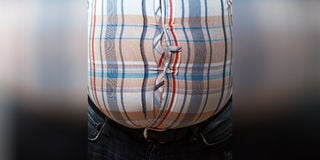
The essence of the presidency, its prestige, and the extent to which the state occupies space in the national psyche, have greatly diminished.
From Kenya, across Africa, and around the world, the cry about democracy is the same: freedom is in trouble; there’s a great democracy decline; dangerous populists are on the rise; the autocrats have eaten democracy; people have lost faith in democracy, and so on.
An article in Human Progress explored democracy’s peril in a piece entitled “Are the Autocratisers Overtaking the Democratisers?”, and concluded ominously that the “decline of democracy (in the world) in the last decade has largely wiped out the recent 35 years of improvement.
Sure, it feels that democracy is half dead, or dying, but we need to dig a bit deeper on whether the picture today is worse than 35 years ago.
Most Kenyans, and other Africans, who are 55 years and older might have a complex view. Consider just the presidency. Like others, the trappings of the Kenyan presidency have grown.
All around the continent, where presidents used to travel in convoys of five to ten cars, today several are conveyed in caravans of up to 100 cars, some with ambulances, toilets, and catering vehicles in tow.
The ability of a president so inclined to wreak havoc has also grown, as we saw in the disastrous consequences of HIV/Aids denialism in South Africa.
However, at the same time, the essence of the presidency, its prestige, and the extent to which the state occupies space in the national psyche, have greatly diminished – that shrinkage has democratic content.
I was a school child at a time when presidents were larger than life. Almost everywhere in this continent, when a president visited an area, there would be a local public holiday. The schools would close (all day or half-day) so we could line the street or road to greet the president. We would all be given small national flags on tiny sticks to wave as he passed. In the end, we would all get fizzy drinks.
The roadsides would be swept, and trees or banana plantations planted. There would be arches over the roads garlanded with flowers. The shops would close.
Either in the African one-party dictatorships or the few conventional multiparty democracies of the time, a president gave important speeches three times a year. At the beginning of the sitting of Parliament every year. On Independence Day. And during his ruling party’s annual delegates conference.
They rarely gave press interviews. They were serious and didn’t try to be funny. In short, they had the Mwai Kibaki approach, who was cut from that cloth.
Today, presidents are in our faces a lot. On social media, the newspapers, or TV you are likely to see a president trying to be funny or clever more times in a week, than your favourite comedy show airs. The roadsides are no longer decked for presidents, nor school kids given holidays to greet the Big Man. There are no flags, fizzy drinks, or glucose, for the school kids that do. Corrupt officials steal the money for that.
We have fairly civic-minded children. Unlike us their parents, they went through school without once having to stand on the streetside to greet a president waving little flags. And something else. In our time, at the school level, the most powerful symbol of the state was the School Inspector coming through from the Ministry of Education headquarters from the capital.
The school lawn would be trimmed. Walls and all nooks and crannies were washed. On the day, all pupils and students (in the “richer” schools) would appear in fresh uniforms; for boys, the khaki shorts starched and head clean shaven.
Our children don’t know what a school inspector is. Most don’t. The decline of the school inspector is a telling sign of the diminution of the state at the most elementary level of nation-building.
The party has also diminished, so the annual congress is not the big deal it used to be. Card-carrying members of parties were a real thing. There were millions of party members. They each paid their annual membership fees and got cards.
The party members were powerful. Consider in Kenya, for example, the stature and power of men like Shariff Nassir, who was ruling Kanu’s Mombasa branch chairman. There were many of those, who struck terror into the hearts of the masses.
When they gathered at an annual conference, it was a big deal. Then they gave the president the mandate to exercise power on their behalf, making him a virtual god. Today, party branch chairs cannot get credit at a kiosk. And party secretaries-general will be stopped from entering an office by a half-drunk guard.
People will pay Sh180,000 a year to their sports club, or Rotary Club membership, but will not part with Sh1,800 for party membership. Parliamentary parties now depend on taxpayer money or the deep pockets of a few cunning people who invest in them as a vehicle for economic capture.
To see most presidents of these times as towering democracy-gobbling megalomaniacs compared to those of the past is to oversell it. Next week, we will look at how the telephone directory, and the newspaper, fit into the diminishing African presidency and state.
- Mr Onyango-Obbo is a journalist, writer, and curator of the "Wall of Great Africans". Twitter@cobbo3










